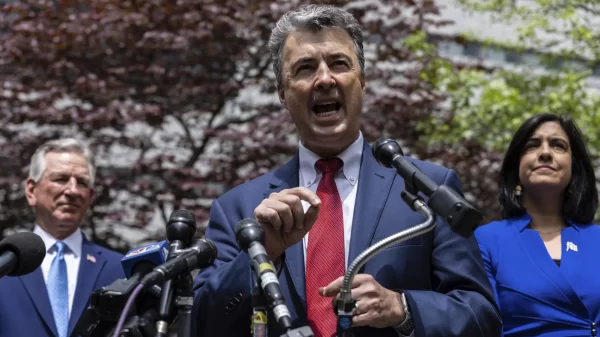|
Getting your Trinity Audio player ready...
|
If a law enacted in Florida is unconstitutional, why is it not unconstitutional in Alabama? This is a question that will soon be posed to the conservative-leaning 11th Circuit Court of Appeals.
Just a few short years ago, transgender care for minors was not on politicians’ radar. Yet, after the Dobbs decision striking down the national right to an abortion, Republican political strategists went searching for a new issue to rile the conservative base. Surprisingly, they found that polling showed the issue of transgender youths sparked outrage that motivated base voters, especially Christian conservatives, and thus a movement was born.
In a landmark decision, U.S. District Judge Robert Hinkle struck down Florida’s prohibition on medical treatments for transgender minors, calling it unconstitutional. This ruling delivers a major blow to Governor Ron DeSantis’ legislative agenda, which has been criticized as discriminatory and rooted in animus against transgender individuals.
However, this ruling starkly contrasts with a decision by the 11th Circuit Court of Appeals in the Alabama case, which upheld the Vulnerable Child Compassion and Protection Act that outlaws transgender treatment for minors in Alabama. Critics argue this Alabama law is a harmful measure driven by political and religious bias. Both Alabama and Florida fall under the jurisdiction of the 11th Circuit in Atlanta. In his order, Judge Hinkle addressed the issue, stating the Florida case was different because of the legislative record showing public officials’ “animus” toward transgender identity.
This critical differentiation was pivotal in Judge Hinkle’s conclusion that the Florida law was driven by discriminatory intent rather than genuine medical concern. “Florida has adopted a statute and rules that ban gender-affirming care for minors even when medically appropriate,” Hinkle declared. “The ban is unconstitutional.”
Judge Hinkle’s order sharply criticized the rhetoric from DeSantis and other lawmakers, which included unfounded claims likening medical treatments to child mutilation and castration. Similar outrageous arguments have been made by Alabama lawmakers and Attorney General Steve Marshall. Marshall’s office has spent substantial taxpayer dollars on suspect outside “experts” which the court found unpersuasive. During the Florida trial, the state admitted no evidence supported these hyperbolic claims, further undermining the law’s rationale.
“Perhaps all this talk about castration and mutilation is just political hyperbole,” Hinkle wrote. “But it casts doubt on the assertion that these decision-makers were motivated by sound regulation of medical care rather than disapproval of transgender identity.”
In a poignant reflection, Hinkle echoed a sentiment from an earlier era: “The arc of the moral universe is long, but it bends toward justice.” His ruling represents a significant step toward safeguarding the rights and dignity of transgender individuals, challenging the pervasive bias and animus fueling discriminatory legislation.
The immediate fallout from these conflicting rulings? A whirlwind of confusion and uncertainty for families of transgender youths. Florida families might be breathing a sigh of relief, feeling a rare moment of judicial support. Meanwhile, in Alabama, families are left feeling abandoned and discriminated against, thanks to a fractured legal system. These legal tug-of-wars spotlight the fiercely contentious and ever-evolving landscape of transgender rights in the United States, with devastating impacts on the families caught in the crossfire.
These rulings are just another chapter in an ongoing legal saga. The divergent decisions highlight that this issue is far from resolved and is likely to be battled out in higher courts. The final verdict might eventually come from the U.S. Supreme Court, promising a uniform interpretation across all states. But in a court deeply fractured along ideological lines and boasting a 5-4 conservative majority, even a ruling from the high court will likely be mired in controversy and skepticism.
As we await the next legal showdown, one thing remains clear: the fight for transgender rights is far from over. It is a battle for dignity, respect, and equality—a battle that must be fought with unwavering commitment to justice.






















































